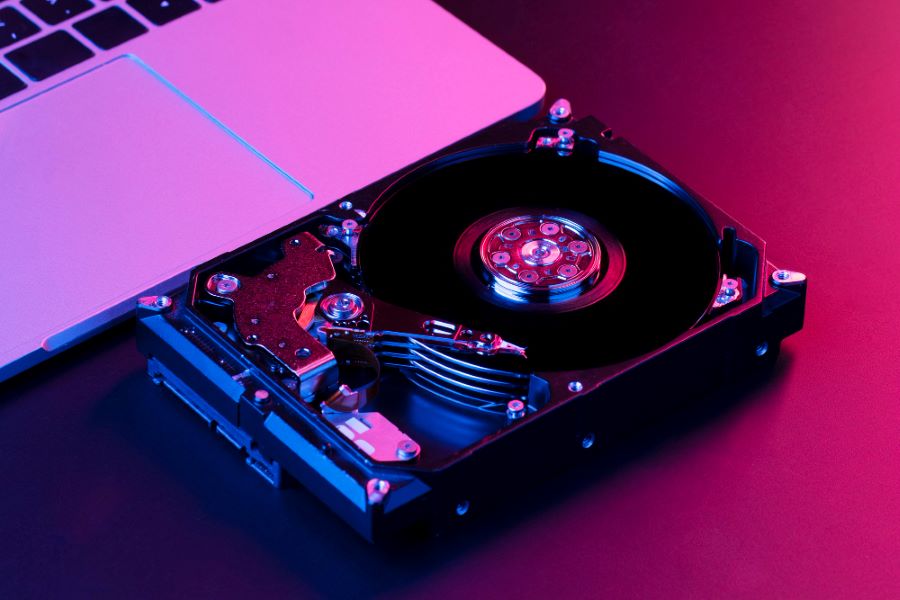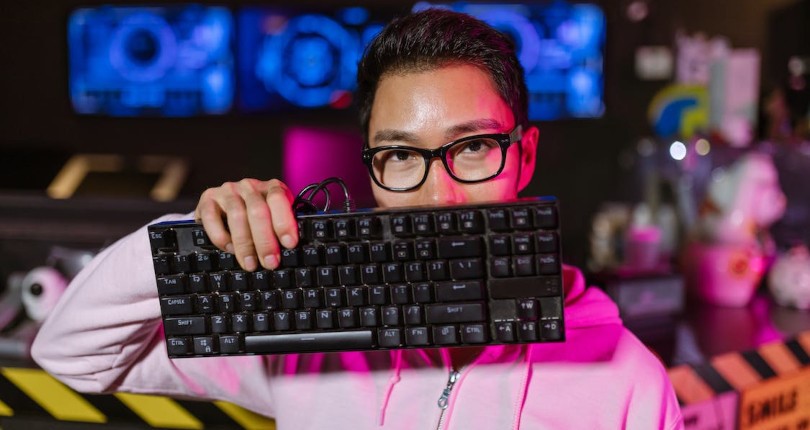Choosing the right video card or GPU is crucial for gaming enthusiasts, creative professionals, and anyone interested in high-performance computing. This article is designed to help you navigate the complex range of GPUs, ensuring you find the right solution for your needs and budget. Whether you are building a gaming rig from scratch, upgrading your current system, or just interested in the latest GPU technology, this article is for you.
Understanding video cards – the powerhouse of visuals
The video card, or graphics processing unit (GPU), displays the images on your computer screen. It is essential in games as it determines how well the system can handle different game graphics, affecting not only the visual quality but also the smoothness and speed of the game.
The main features of the video card:
- GPU core: This is the main component of the video card. The core of the GPU is the core of the card.
- Video memory (VRAM): Video RAM is crucial for storing images and textures before processing. More VRAM means better performance at higher resolutions.
- Speed: This refers to how fast the GPU can process data, directly impacting performance.
- Cooling solutions: Adequate cooling is essential to avoid overheating. Options range from air cooling for budget and mid-range cards to liquid cooling for more advanced models.
Examples of different user needs:
- For casual gaming: Consider GPUs like the Nvidia GeForce GTX 1650 or AMD Radeon RX 550.
- For avid gamers: Mid-range options like the Nvidia GeForce RTX 3060 or AMD Radeon RX 6700 XT offer a good balance of price and performance.
- For hardcoregamers and professionals: High-end GPUs like the Nvidia GeForce RTX 3090 or AMD Radeon RX 6900 XT provide top-notch performance.

Matching your GPU with the motherboard
The GPU and the motherboard must be compatible for the system to work correctly. The motherboard is the foundation of your computer, connecting all the components, including the GPU.
A fully compatible GPU with the motherboard will run more efficiently, providing smoother data transfer and better overall performance. This is especially important for high-end gaming or professional applications where every bit of processing power counts.
Inadequate components can cause bottlenecks where one part limits the performance of another. For example, a high-end GPU connected to a motherboard with an outdated PCIe interface may not operate at total capacity due to limited PCIe slot bandwidth. To avoid such scenarios, ensuring that the GPU and the motherboard match performance is essential.
Factors to consider to ensure interoperability:
- PCI Express compatibility: Ensure the motherboard has the appropriate PCIe slot (e.g., PCIe 3.0 or 4.0) for your GPU.
- Size and fit: Check that the GPU fits into the PC case and does not block other motherboard components.
- Power supply requirements: Make sure your power supply unit (PSU) has the power connectors and power required by the GPU.
Tips for the perfect connection:
- Small form factor PCs: Look for compact GPUs such as the Nvidia GeForce GTX 1650, which are compatible with smaller motherboards.
- Standard gaming configurations: AMD Radeon RX 6700 XT suits most ATX motherboards.
- High-performance systems: For the Nvidia GeForce RTX 3090, choose a motherboard with a robust power supply and cooling feature.

Cost-effective choices and balancing the budget
Choosing the proper GPU is a delicate balance between your desired performance and budget constraints. This balance is crucial for satisfying gaming or work experience and getting the most value from your investment.
Understanding performance needs
The first step to balancing budget and performance is clearly understanding what you need from your GPU. This will vary considerably depending on your application:
- Gaming: Consider what games you play. High-end AAA games require a more powerful GPU than average or older games.
- Professional use: If you do video editing, 3D rendering, or other graphically intensive tasks, you will need a GPU that efficiently meets these demands.
- Everyday use: A mid-range or even entry-level GPU may be sufficient for everyday use or less intensive games.
Setting a realistic budget
Once you have identified your needs, set a realistic budget. GPUs are available at a wide range of prices, and it is easy to either overspend or underspend. Consider:
- Short-term vs. long-term: Sometimes, spending more initially can save money by delaying upgrades.
- Sales and discounts: Keep an eye out for sales, especially during the festive season or when newer models are released, as older models are often reduced in price.
- Second-hand: Buying second-hand GPUs can be a cost-effective option but comes with risks. Make sure the card is in good condition and has not been used for intensive tasks such as cryptocurrency mining.
Recommendations for different budgets
The GPU must be balanced with other system components. There is little point in combining a high-end GPU with a low-end CPU as you will not be able to use it to its full potential, as there will be problems with overall system performance. So take a look at these hardware purchasing recommendations to understand your exact needs better:
- Budget-Conscious Gamers: Look for GPUs with good performance at 1080p, like the Nvidia GeForce GTX 1650.
- Mid-Range Gamers: For a balance of cost and performance, consider GPUs like the Nvidia GeForce RTX 3060.
- High-End Users: If budget is less concerned, opt for top-of-the-line GPUs like the Nvidia GeForce RTX 3090 for unparalleled performance.
Empowering your choice in GPUs
In conclusion, choosing the right video card for your PC is an important decision that can significantly improve your gaming and PC experience—understanding the main functions of video cards. Ensure compatibility with the motherboard, balance performance with budget, and consider advanced features.
Once you’ve done this, you’re ready to make an informed choice that best suits your needs. Remember that the world of GPUs is dynamic, with new developments and technologies constantly emerging.
Keep up to date with the latest trends and developments. Whether you’re a casual gamer, an active enthusiast, or a professional content creator, the proper GPU will enhance your gaming experience and ensure smooth and engaging performance on your PC.
Enhance your gaming experience with more valuable information:

Sveiki,
Mani sauc Aiva, man patīk brīvajā laikā staigāt pa parku. Izveidoju Lpcomputer, lai tik plašu sfēru kā datori aprakstītu vienuviet. Ja meklē informāciju kādu datoru pirkt, šeit tu to iegūsi.



